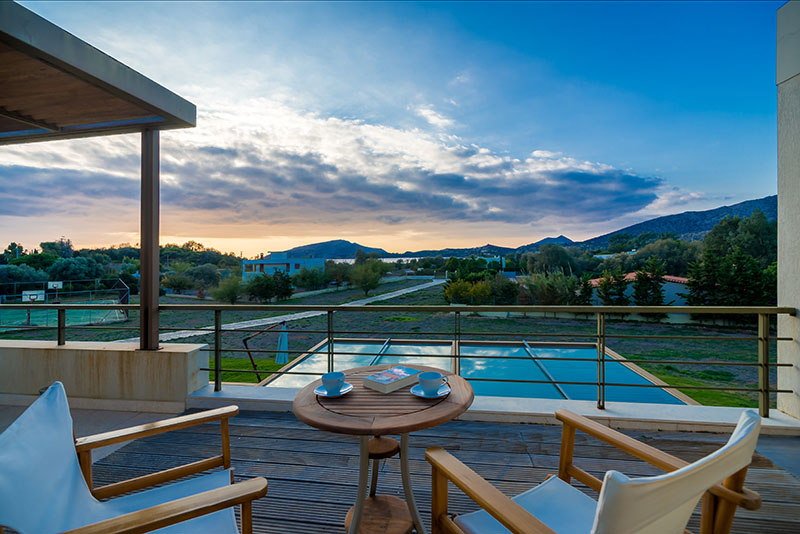Let’s discuss the posts, the so-called listings, which is your main tool to promote your property locally and abroad, and to present yourself to the prospective tenants.
From platform to platform the rules for entering a property are a little different. Each of the platforms has a different way of displaying property information, but the ultimate goal is for all properties that are presented to have uniformity in terms of presenting the information that is of interest to the renters.
It is also important that each platform has different ways in which one can start the process of posting the property. At Airbnb, for example, there is no control, and one can finish in a few hours, and the property goes on the air and is shown immediately.
On other platforms, however, it is not so simple. The more we move away from simple Airbnb-type tools and move to more complex situations and more professional tools-platforms, the promotion of the property does not happen immediately. It can take from 48 hours to a month until it starts to show.
There are other platforms where one must first send an email of interest; the company will call the owner back to start the posting process, requesting certain documents, such as contract with the administrator, owner’s ID, real estate building permit, bank account details, one electricity or telephone bill in the name of the owner. The way platforms are separated is based on their main features. They are:
- The part of managing rental prices
- The part of displaying real estate information
- The photo section, their description and video
- And finally, the part of cancellation policies
In almost every platform, all the above differs from one to another, so there is no common way to manage the posting on the platforms, so that the property manager can the job of posting to all at one strike.
I will talk about the price management part in another article because it is very important and it is a category in itself.
So I will focus a little bit on the other parts.
The part of the descriptions is where the manager is given the opportunity to present the property in writing. It is an opportunity to win over the tenant with his description, and in combination with the photos to convince him to proceed with the reservation.
The difficulty is usually that the various individual parts of the description differ from one platform to another, along with the allowed text space. For example, the title of a post, a very important point, on one platform allows up to 50 characters, on another platform it is 70 characters. So, the question is: should we use the least possible space, and put the same title on all platforms? Or write a different title for each platform separately, taking full advantage of the space given to it?
In the main description of the property, also the maximum space varies from platform to platform. Worse, the main description is sometimes divided into individual pieces, where the description for very specific things is included, e.g. the surrounding area, but this only exists on one of the platforms, while the rest of the platforms ask in their own individual text blocks to describe something else. This makes writing the description a difficult task especially when it has to be done differently from platform to platform.
A very important part of the main description of the property is the languages. Some platforms manually translate the main descriptions of the property (booking.com) into many languages, but the administrator has no right to add to the text or has only a few additions and these take place following approval from the platform. Other platforms provide automatic translation of the main description of the property, allowing the text to be inserted into other languages by the administrator himself, provided that the automatic translation of the description is disabled for languages where he has translated his own translations.
Translations into other languages is a terrific tool that, if used properly by the administrator, can make a big difference in the final outcome of the season when it comes to bookings. Imagine what the impression of the reader will be, if a translation in his own language is done by a real translator, where fantastic work has been done in the description giving an excellent overall feel of the property. Compare this to automatic translation – it is like comparing day and night.
Let us go to the photos section.
The photo part is the most awkward because the platforms are different from each other by the quality of the photos that are accepted for publication. However, it is particularly important that it is done correctly on each platform so that it achieves the best result and attracts potential tenants. Many platforms set limits on the quality and size of photos, sometimes specifying the outcome of the rental attempt from the beginning, if the property manager has low-resolution photos; such photos affect the property’s ranking in search results on the platform sometimes.
In addition, on some platforms there is a limit to the number of photos that one can upload for each property.
Photo comments are an opportunity to describe what exists and what does not exist in a photo. The important thing is that comments work in harmony with the photos, so that they achieve a nice result when of course the administrator has used his mind to put a logical order in the photos. With the help of descriptions, a ‘photographic’ tour of the property is possible, which contributes to the bookings to a great extent.
And we reach the point of discussing cancellation policies. No need to stress their importance. But the various cancellation policies available to select from on each platform are different, making it one of the pieces that the platform administrator changes more than once during the booking period. A lot of money is lost due to wrong cancellation policies.
The administrator should very wisely choose the cancellation policies to be applied for a property, individually on each platform, and should think two things: first, what cancellation policy the rest of the competitors use in the area. Second, in the case where the administrator chooses a flexible cancellation policy, what are the possibilities of replenishing the cancellation with a new fresh booking, should it occur. But also, what sacrifices can be made in terms of choosing a cancellation policy, in cases the cancellation gap on the calendar is not filling and the time passes by.
In the past, between 2006-2009, most cancellation policies were strict: a 30-50% down payment on the total amount with every booking was paid, and in the event of cancellation, nothing was refunded. This, took place to houses, in contrast to hotels that have always had great flexibility in cancellations. In fact, the loss of the down payment back at the time was also an obstacle to see the entire short-term rental market taking off – no manager or owner was giving up on their policy regarding down payments. Now that there is much more intense competition in short-term leases, the first thing that is taken out of the way is a strict cancellation policy, along with the guarantee for damages.
A little secret
Manage your cancellation policies very wisely. Be careful not to give up on the strict cancellation policies for the part of the season where you have the most bookings, where the outcome of the season and your earnings depend on it. If tenants lose one nights’ worth of money because of canceling their reservation is enough to prevent them from canceling. You don’t have to go to extremes with cancellation policies where you keep half the money or all the money. For the rest of the season, you can stay flexible by leaving a window 30 or 60 days before arrival where they can cancel freely.
For platforms where you can only have one cancellation policy throughout the season, be sure to choose by weighing between what your competitors are doing and what you would like and make a decision. This decision should depend to a large extent on how easily you can fill the cancellation gap while using other platforms that will most likely fill part of your cancellations.
You can contact me directly through the site. Konstantinos Papachatzis.

